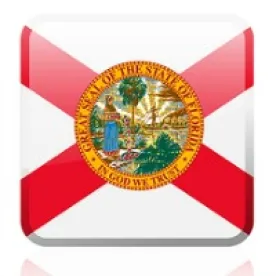So you’ve won a judgment against a Florida company or individual. Now what? Creditors that want to enforce and collect upon a judgment in Florida should be aware of recent changes to Florida statutes regarding the enforcement of out-of-country foreign money judgments and proceedings supplementary. Jeffrey Kucera and Mallory Cooney discuss these changes and some of the practical impacts the amendments may have.
Transcript:
Introductory Narrator: Welcome to Legal Tropics from the office of K&L Gates Miami. Our lawyers strive to bring you the hot-button topics in emerging legal trends, the drivearm Miami marketplace, and extend far beyond. We bring you the latest legal insights so you can avoid the heat.
Jeff: Hello and welcome to Legal Tropics. In this episode, we’re going to talk about some specific changes happening in the Florida with respect to judgment enforcement. My name is Jeff Kucera, and I’m a partner in the restructuring and insolvency group in the Miami office of K&L Gates. With me today is Mallory Cooney, who I have had the pleasure of working with on judgment enforcement matters both foreign and domestic, including appeals related to some of the statutory provisions that have been changed. Mal, can you please tell our listeners a little bit about yourself?
Mallory: My name is Mallory Cooney. I am a commercial litigation associate in the Miami office, and I work with Jeff.
Jeff: You do, and you a fantastic job. So, good morning everyone, and let’s talk about some things today—we’re going to talk about two things in particular, and one is changes to the Uniform Out Of Country Foreign Money Judgment Recognition Act, which is way too many words in the title of the legislation, and we’re also going to talk about some things on general judgment enforcement. But I’ll start us off with the issues regarding the Uniform Out Of Country Foreign Money Judgment Recognition Act.
The first thing you have to remember is, what does the word “foreign” mean in this context? And that’s because, in addition to the Uniform Out Of Country Foreign Money Judgment Recognition Act, Florida has the Florida Enforcement of Foreign Judgments Act, which is section 55.501 et seq of the Florida statutes, and in that context, foreign means other states—other parts of the United States, that is, but other states within the U.S. In the context Uniform Out Of Country Foreign Money Judgment Recognition Act, though, we’re talking about foreign countries.
So, the question is, how did Florida change the enforcement of judgments from other countries? Basically, the process you would follow for enforcing a judgment is the same under both acts. You bring your judgment to the clerk of the court with a certified copy, it gets recorded, and then the judgment debtor gets served with a copy and has 30 days to file objections. But the real question for today is, what changed? And the answer to that is that there are two new grounds for challenging recognition of a out-of-country foreign money judgment under section 55.605, and specifically we’ll talk about subsections (i) and subsection (j). Under subsection (i), the new ground for challenging recognition is that the judgment was rendered in circumstances that raise substantial doubt about the integrity of the rendering court with respect to the judgment. In practice, what this means is you’re likely going to have to show some evidence of corruption of that particular court and for your judge in particular in order to object to the recognition of the judgment.
Under subsection (j), the new ground for non-recognition is the specific proceeding in the foreign court leading to the judgment was not compatible with the requirements with the due process of law. So, just like before, you would have to show some specific corruption on the part of your judge. Here, a defendant would have to show that there was some problem in their particular proceeding that lead to the judgment that was not compatible with the requirements of due process of law. And you might ask yourself, “Why make these changes, and what is going on?” Well, really what they do is they address specific problems related to a single case.
Previously, subsection 1(a) only addressed situations with a system itself in the foreign country did not provide for impartial tribunals or lack of procedures compatible with the requirements of due process of law. But now, we’re looking at the specific case and the specific act of that specific judge. So it is making things a little bit more narrow and looking to how things were implemented in particular and not just what the surrounding judgment was. And, this also, by the way, stems from the 2005 Recognition Act, which was the proposed uniform law that lead to these Uniform Enforcement Of Foreign Money Judgments Recognition Act. So, that being said, let’s throw it over to Mallory to talk about changes now in proceeding supplementary. So, Mallory, why don’t you tell us a little bit about that…
Mallory: Sure, so we’re going to talk about the use of, what are called, proceeding supplementary in Florida for enforcement of foreign judgments, and the first question is, obviously, what is a proceeding supplementary and why have the rules changed in Florida? So, once a judgment has been domesticated in and recognized by Florida courts, the judgment creditor may, under 5629 of the Florida Statutes, bring what’s called a proceeding supplementary against non-parties who the creditor believes to be in procession of assets that should be subject to execution under the judgment. So this would include assets that the judgment debtor may have transferred to others to defeat collection by the judgment creditor, and this proceeding was designed as a way to avoid the necessity of having a judgment creditor initiate and entirely separate lawsuit in Florida courts in order to satisfy that judgment after they’ve domesticated in Florida through any other process. But, for the last few decades, courts in this state have disagreed on interpretation of the statute related to procedures and rights of third parties that have been summoned to appear and defend entitlement to property in their possession. So, in deference to that confusion amongst the Florida circuits, on March 9 of 2016 the Florida Legislature amended the statute in an effort clarify the language in a few ways.
The first was of the new language clarifies the pleading requirements for proceeding supplementary. Namely, the proceeding supplementary are initiated by a judgment creditor filing a motion and an affidavit in a state court identifying first the judgment at issue, second the unsatisfied amount of that judgment, and third describing any property in particular that the judgment debtor was in possession of that is no longer in his possession is not exempt from execution in the hands of any person or any property, debt, or other obligation due to the judgment debtor, which may be applied toward the satisfaction of the judgment.
So, upon receipt of that motion and the affidavit filed by the judgment creditor, the court then issues what’s called a notice to appear, which just simply summons that third party to respond to the claim that the property alleged to be belonging to the debtor that is now in this third party’s possession should be seized to satisfy the creditor’s judgment. All defenses must be raised in that new—newly pleaded defendant’s response. No other motion practice, such as motions to dismiss, are permitted. This second change to the statute comes in the statute’s lookback period. So, new subsection 3(a), which was formerly subsection 6 before 2016 provides for the shifting of the burden to the impleaded defendants to prove that transfers from the judgment debtor to them were not made with the purpose to hinder, delay, or defraud creditors.
This burden shifting is triggered by the fact that the transfer happened within one year of service of process, which creates an inference of fraud. But there was some very intense confusion based on the language of the statute, same within one ear of service of process, as to whether the lookback period for the transfer ran from one year before the judgment debtor was served in the underlying lawsuit or if the lookback was limited to one year before the impleaded defendants were served with process in the proceeding supplementary. And this very appeal came up in an appeal Jeff and I worked on recently, so we can personally attest to the fact that many litigants took issue with the lack of clarity in this statutory language. The new version of the statute clarifies that the lookback period extends to “one year before the service of process on the judgment debtor in the original proceeding or action,” which is much more fitting with the original intent, the idea being that a transfer made right before a lawsuit that a debtor might see coming would fairly give rise to a presumption of fraud. So, the final change to the statute that I’m going to describe for you is to subsection 9 dealing with fraudulent conveyances.
So, this update clarifies that if a judgment creditor brings and action against a third party under Florida’s Uniform Fraudulent Transfer Act is part of an effort to recover assets subject to execution. That action cannot be part of a proceeding supplementary. It must be commenced as a separate proceeding, with a separate complaint, and assigned its own case number. So, while the purpose of proceeding supplementary is to prevent the creditor from having to initiate separate actions, this clarification separates the two proceedings. The legislature state intent was to protect the rights of third parties accused of being party to a fraudulent transfer as opposed to being simply ordered a turnover property as they would under a proceeding supplementary because it’s a much more serious charge. Back to you Jeff.
Jeff: Thank you, Mallory. I appreciate that. Great job summarizing the changes in the statutory framework for the proceeding supplementary, and especially with that lookback period.
Mallory: Thank you.
Introductory Narrator: This was another episode of legal tropics by the Miami office of K&L Gates.





 />i
/>i

